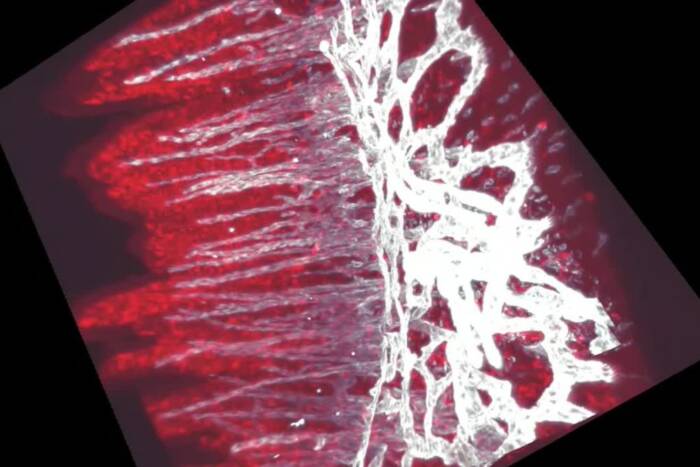American Philosophical Society elects Cori Bargmann to membership
 Cori Bargmann, Torsten N. Wiesel Professor at The Rockefeller University and an investigator at the Howard Hughes Medical Institute, has been elected to the American Philosophical Society in the biological sciences.
Cori Bargmann, Torsten N. Wiesel Professor at The Rockefeller University and an investigator at the Howard Hughes Medical Institute, has been elected to the American Philosophical Society in the biological sciences.
The American Philosophical Society is an honorary society that elects new members each year who have shown extraordinary accomplishments in their fields. Founded by Benjamin Franklin in 1743, it is the United States’ first learned society, and unique among its peers for the wide variety of academic disciplines represented by its membership: math and physics, biology, humanities, social sciences and the arts, professions and leaders in public and private affairs. Its mission is to promote useful knowledge in the sciences and humanities through excellence in scholarly research, professional meetings, publications, library resources and community outreach.
Bargmann, head of Rockefeller’s Lulu and Anthony Wang Laboratory of Neural Circuits and Behavior, uses molecular and classical genetics to probe the individual nerve cell basis of behavior in the nematode Caenorhabditis elegans. Its most complex behaviors occur in response to smell, and these are at the heart of the Bargmann lab’s research.
Bargmann received her undergraduate degree in biochemistry from the University of Georgia. She received her Ph.D. in 1987 from the Massachusetts Institute of Technology, where she worked under Robert A. Weinberg at the Whitehead Institute for Biomedical Research. She pursued a postdoctoral fellowship with H. Robert Horvitz, also at MIT, until 1991, when she accepted a faculty position at the University of California, San Francisco. She remained there until 2004, when she joined Rockefeller as the Torsten N. Wiesel Professor. Dr. Bargmann also is codirector of the Shelby White and Leon Levy Center for Mind, Brain and Behavior. She has been an investigator at the Howard Hughes Medical Institute since 1995.
Dr. Bargmann is a member of the National Academy of Sciences and the American Academy of Arts and Sciences. She received the Dart/NYU Biotechnology Achievement Award this year, the 2009 Richard Lounsbery Award from the U.S. and French National Academies of Sciences, the 2004 Dargut and Milena Kemali International Prize for Research in the Field of Basic and Clinical Neurosciences and the Charles Judson Herrick Award for comparative neurology in 2000. She is the ninth Rockefeller University faculty member to be inducted to the American Philosophical Society.


